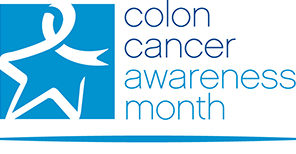March is colorectal cancer awareness month and a great time to learn more about one of the types of cancer that strikes men and women equally. It claims more than 50,000 lives annually and more than 140,000 new cases are diagnosed each year.
Colorectal cancer is most prevalent in people over 50 years of age with 90% of cases occurring in that age group.
The American Cancer Society estimates the following stats for Texas for 2023:
Projected estimated new cases – 153,020
Estimated number of deaths – 52,550
Screening can save lives by helping find precancerous polyps so they can be removed before they become cancer. Tests can also find colorectal cancer in the early stages when it can more often be cured. Polyps and colorectal cancer often do not cause symptoms early, which is another reason for routine screening.
Several screening tests are available:
- Colonoscopy (every 10 years, depending on personal or family history)
- High-sensitivity fecal occult blood test, stool test, or fecal immunochemical test (every year)
- Sigmoidoscopy (every 5 years, with FOBT every three years)
Experts agree that following these healthy living guidelines can help prevent colorectal cancer:
- Get regular screenings beginning at age 45 (recently lowered from age 50). If there is a family history of colorectal cancer or polyps or a personal history of another cancer or inflammatory bowel disease, check on earlier screening.
- Eat plenty of fiber – 25 to 30 grams of fiber each day from fruits, vegetables, whole-grain bread and cereals, nuts and beans.
- Follow a low-fat diet.
- Eat foods with folate such as leafy green vegetables.
- Don’t drink excessive alcohol or smoke. Alcohol and tobacco in combination are linked to colorectal cancer and other gastrointestinal cancers.
- Exercise for at least 20 minutes three to four days each week. Moderate exercise such as walking, gardening or climbing steps may help reduce your risk.
Colorectal cancer is often a silent disease, developing with no symptoms at all. When symptoms do occur they may include the following:
- Blood in or on the stool
- Change in bowel habits
- Stools that are narrower than usual
- General stomach discomfort (bloating, fullness and/or cramps)
- Vomiting
- Diarrhea, constipation or feeling that the bowel does not empty completely
- Frequent gas pains
- Weight loss for no reason
- Rectal bleeding
- Constant tiredness
If you have any of these symptoms for more than two weeks, see your healthcare professional immediately.
American Cancer Society – www.cancer.org


